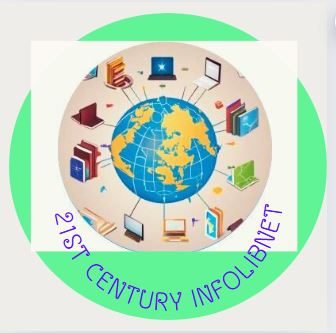Introduction:
Librarians Without Borders is a movement that aims to transform communities through the power of libraries. By providing free access to knowledge and promoting library programs and services, librarians are reaching out to diverse audiences and making a positive impact on society. This blog post will explore the initiatives and success stories of Librarians Without Borders, as well as the importance of community engagement in library accessibility.
Libraries as Community Resources:
Libraries play a vital role in society by fostering a sense of community beyond their walls. Librarians Without Borders seeks to strengthen this role by forming partnerships and creating innovative outreach services to engage communities [1]. By reaching out to underserved and diverse multicultural communities, librarians are building strong community partnerships with neighborhood organizations and providing services that meet the specific needs of their patrons [1].
The Importance of Outreach:
Outreach programs play a crucial role in expanding the reach of libraries and ensuring that their services are accessible to all. By going beyond the physical walls of the library, librarians can connect with individuals who may not have easy access to traditional library services. Outreach helps bridge the gap between the library and the community, fostering a sense of inclusivity and engagement [3].
Connecting with Local Leaders and Organizations:
To effectively serve the community, libraries need to establish connections with local leaders, organizations, and decision-makers. By actively participating in local events, joining community boards, and attending council meetings, libraries can have a voice in shaping policies and decisions that impact their patrons [3]. Building relationships with community leaders also opens doors for collaboration and support for library initiatives.
Programming Outside the Library:
Outreach programming goes beyond traditional bookmobiles and extends into various community spaces. Libraries can organize events and activities in schools, temporary housing facilities, nursing homes, and other nontraditional living situations [3]. By tailoring programs to meet the specific needs and interests of these communities, libraries can demonstrate their relevance and value.
Success Stories:
Librarians Without Borders has led to numerous success stories where libraries have transformed communities. Here are a few examples:
1. Libros y Libertad: Freedom through Books for Unaccompanied Minors:
This program focuses on providing books and library services to unaccompanied minors, helping them access knowledge and resources that can empower them [1].
2. Building Community through Conversation: Diverse Books to Engage Readers:
Libraries are using diverse books as a tool to engage readers and promote inclusivity. By offering a wide range of books that reflect different cultures, backgrounds, and experiences, libraries are creating spaces where everyone feels represented and valued [1].
3. Transforming Information Literacy to Support Institutional Urban Mission:
Libraries are adapting their information literacy programs to support the urban mission of their institutions. By providing resources and services that cater to the specific needs of urban communities, libraries are empowering individuals and contributing to their personal and professional growth [1].
Importance of Community Engagement:
Librarians Without Borders emphasizes the importance of community engagement in library accessibility. By involving patrons with disabilities directly in the planning and implementation of accessibility projects, libraries can better understand their unique perspectives and experiences [2]. This approach ensures that accessibility adjustments to library spaces, services, and programs are made with, by, and for the people who will benefit from them [2].
Conclusion:
Librarians Without Borders is a powerful movement that is transforming communities through libraries. By providing free access to knowledge, engaging diverse audiences, and involving communities in the planning and implementation of library initiatives, librarians are making a positive impact on society. Through their dedication and commitment, librarians are ensuring that libraries remain accessible and inclusive spaces for all. The concept of Libraries Without Borders and how outreach initiatives can help libraries build a stronger sense of community.
Libraries Without Borders is a concept that emphasizes the importance of outreach in building strong and inclusive communities. By actively engaging with local leaders, organizations, and individuals, libraries can extend their services beyond their physical spaces and ensure that everyone has access to information and resources. Through outreach programs and initiatives, libraries can become community anchors, fostering connections and addressing the diverse needs of their communities.
Learn more:
- Guest Post: Librarians Without Borders: Libraries Transforming Communities | IFLA New Professionals Special Interest Group
- Putting “Nothing About Us Without Us” into Practice in Small and Rural Libraries | Programming Librarian
- Libraries Without Borders: Using Outreach to Build Community
- Hawassa University: Libraries Outreach Projects in the Sidama Region, Ethiopia
- Library Week and Libraries Without Borders US – Out of Print

